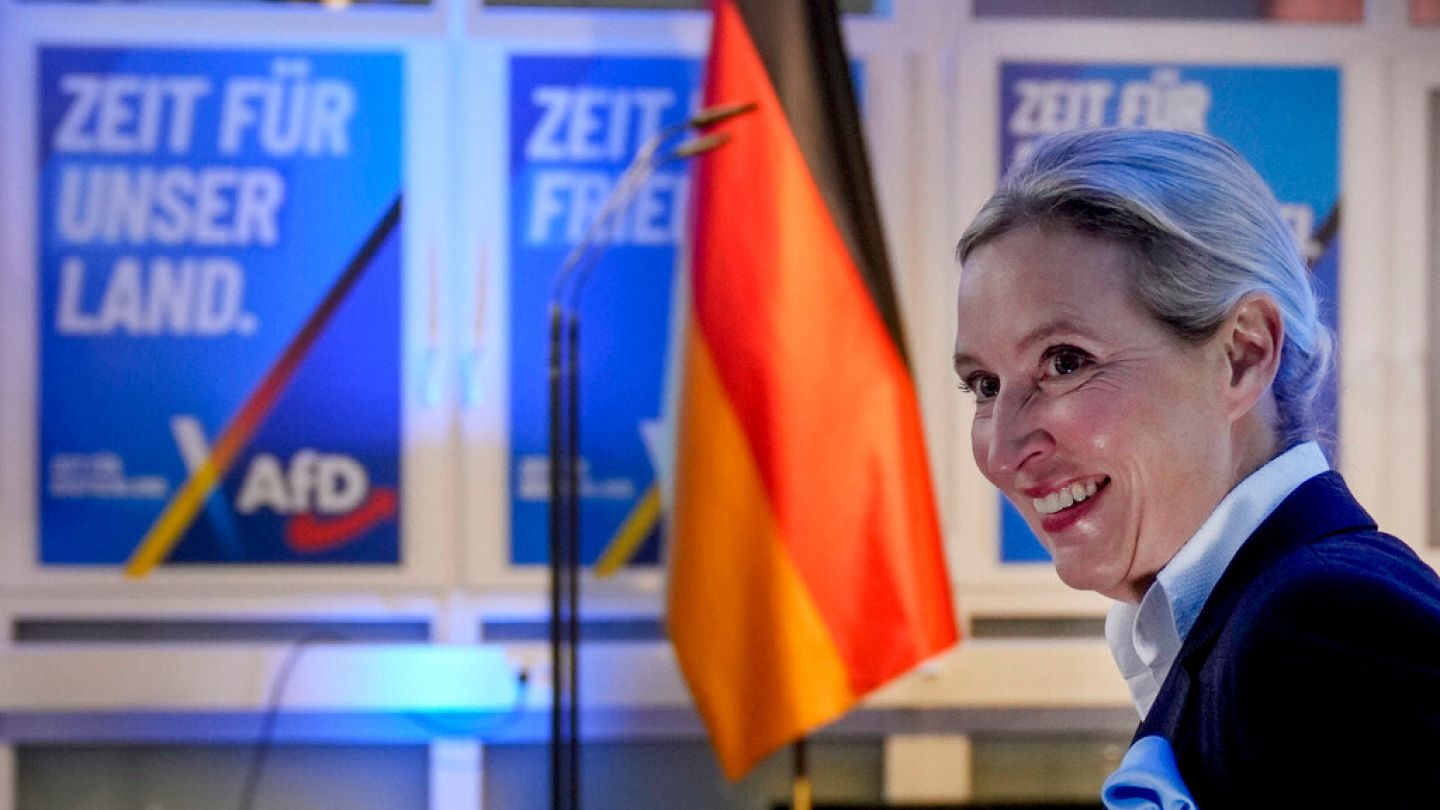German far-right AfD party files lawsuit over 'right-wing extremist' designation
The Federal Office for the Protection of the Constitution last week designated the AfD as a right-wing extremist organisation, meaning authorities can step up their surveillance of the party.
The far-right Alternative for Germany (AfD) has filed a lawsuit against the country's agency tasked with protecting the constitution after it designated the party as "right-wing extremist" last Friday. Daniel Tapp, a spokesperson for the AfD's co-leader Alice Weidel, told dpa news agency that a letter outlining this was sent to the responsible administrative court in Cologne. The Federal Office for the Protection of the Constitution (BfV) on Friday designated the AfD as a right-wing extremist organisation. It concluded "after intensive examination" over a three-year period that racist and anti-Muslim stances advanced by the party were incompatible with the "free democratic order" set out in the country's constitution. Its positions on individuals with a migrant background were based on an “ethnic-ancestry-based understanding” of German identity.Furthermore, the party's aims "exclude certain population groups from equal participation in society, to subject them to unconstitutional unequal treatment and thus to assign them a legally devalued status”, the BfV said. Immediately after the ruling, the AfD called it a "serious blow to German democracy" and argued that the BfV was violating the country's constitution. The party's co-leaders, Weidel and Tino Chrupalla, said the AfD would "exhaust all legal means to defend the free democratic basic order."Opponents have previously called for the AfD to be banned on the grounds that it seeks to undermine democratic values. Domestic intelligence has already classified factions of the party, including its entire youth wing, as extremist. The classification of the entire party has reignited a debate about whether it should be outlawed, although several politicians, including outgoing Social Democrat Chancellor Olaf Scholz, have warned against making a "hasty decision".Shortly before the classification, other political parties debated how far the AfD, the second-strongest party in parliament with 152 seats, should be integrated into parliamentary decision-making. Deputy leader of the centre-right Christian Democratic Union (CDU), Jens Spahn, previously called for the AfD to be treated like "any other opposition party". In light of the BfV's ruling, Spahn said that his party took the classification "seriously".CDU, alongside the Social Democrats (SPD) who are set to form a new coalition government on Tuesday, would "closely coordinate on how to deal with the AfD in parliamentary proceedings," Spahn added.


